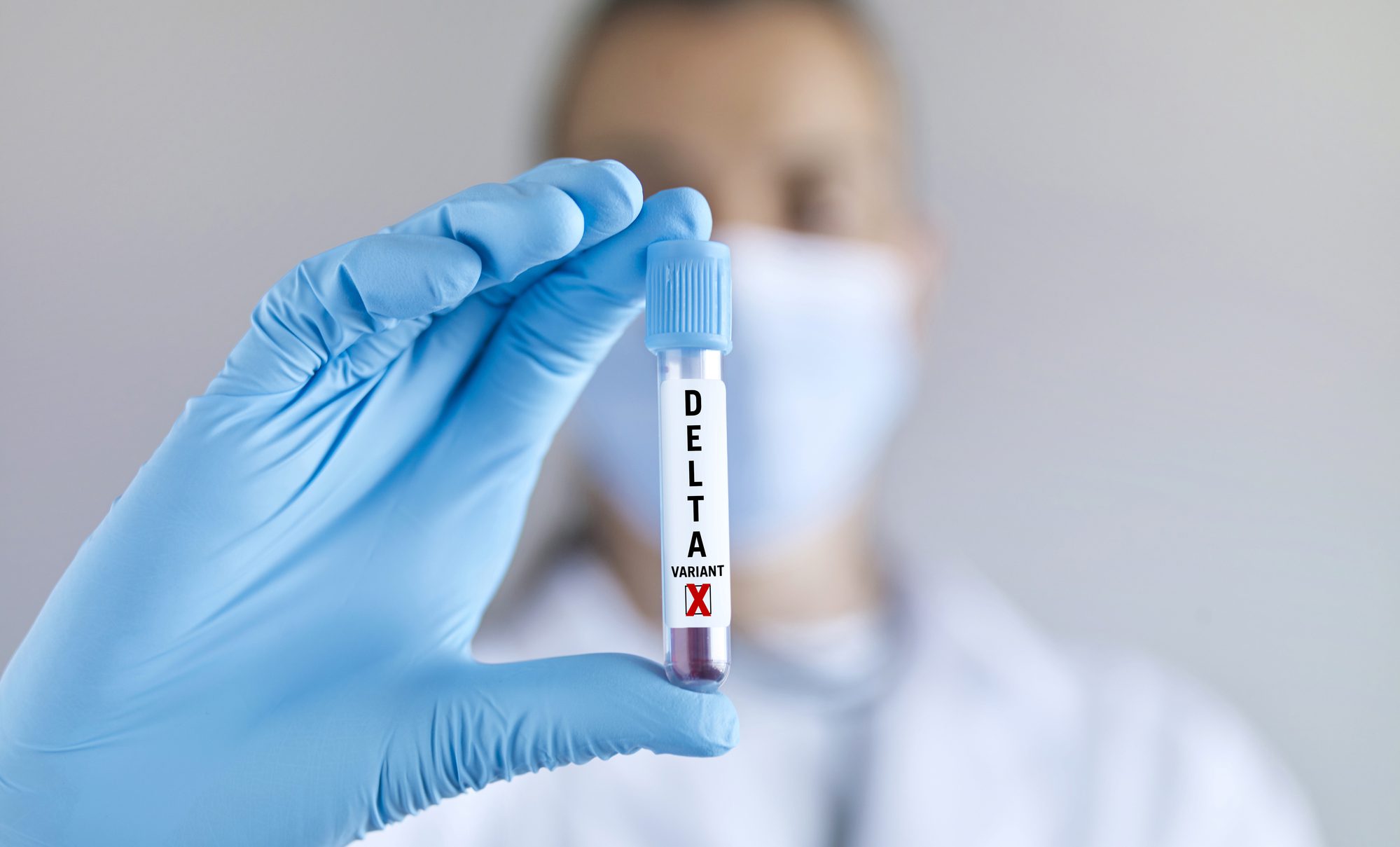The United States is grappling with a surge in cases of the delta variant, a highly contagious COVID-19 strain that was first identified in India in December 2020. Delta is now the dominant COVID-19 variant nationwide and comprises more than 80% of all new novel coronavirus infections in the country, according to data from the U.S. Centers for Disease Control and Prevention (CDC).
This rise has been partly attributed to the delta variant being significantly more transmissible than strains seen earlier in the pandemic, say infectious disease experts in Northern California. Geographic areas with low vaccination rates are more likely to see a surge in hospitalizations due to the delta variant, even in relatively healthy individuals, they say.
To better understand the delta variant and how well COVID-19 vaccines prevent its spread, we interviewed Gary Green, M.D., FIDSA, an infectious disease specialist at Sutter Santa Rosa Regional Hospital, and Jeffrey Silvers, M.D., Sutter’s medical director of infectious diseases.
How does the delta variant differ from other strains of the novel coronavirus?
Drs. Silvers and Green: The delta variant evolved from previous strains of the virus. It has some similar and some unique mutations compared to the alpha, beta, gamma and other COVID-19 variants. One particular mutation enables delta to produce higher viral loads in infected individuals, making it more easily transmissible by air droplets and secretions, especially when sneezing, coughing or talking. The delta variant also has a shorter incubation period of approximately four days (vs. 5.6 days incubation period of the original SARS-CoV-2 virus). That means people may become symptomatic faster and shed the virus earlier.
What is the risk of infection with the delta variant in non-vaccinated individuals?
Drs. Silvers and Green: The delta variant is much more contagious and dangerous to unvaccinated people than individuals who have been vaccinated. The COVID-19 increase we are seeing now is similar to the first wave of COVID-19 seen in early 2020. The delta variant is approximately three times more contagious than the original strain of SARS-CoV-2. As noted above, the delta strain also has a shorter incubation period, and produces even higher viral load early in the course of the disease (when infected individuals have only mild symptoms). Therefore there is more virus to spread to other, healthy people.
What is the risk of infection in individuals who have been vaccinated?
Drs. Silvers and Green: Although a number of fully vaccinated people have been becoming infected with the COVID-19 delta variant, most of those people have mild-to-moderate disease. There is a small risk of severe illness, hospitalization or death after vaccination against COVID-19, seen mostly in individuals who are severely immunocompromised, elderly or living in congregate nursing facilities.
Are U.S. hospitals seeing younger, relatively healthy patients admitted for COVID-19 caused by the delta variant? If so, do symptoms and the disease course present any differently compared with other strains of the virus?
Drs. Silvers and Green: Compared to other strains of COVID-19, the delta variant is causing more severe disease in younger individuals (i.e. 20-50 years old). Also, these cases are more severe, with disease progression occurring more rapidly than COVID-19 caused by other variants of the virus. About 90% of the COVID-19 cases caused by delta variant infection are in unvaccinated individuals. Further studies are needed to determine if the delta variant causes more severe disease in children compared with other COVID-19 strains.
Have breakthrough cases of COVID-19 been reported after delta variant infection, even in individuals who were vaccinated? If so, can infected individuals transmit the virus to others?
Drs. Silvers and Green: One study described a recent COVID-19 outbreak that occurred in Massachusetts. The study showed that three-quarters of cases occurred in fully vaccinated people. Testing identified the delta variant in 90% of specimens from 133 patients. Massachusetts has a high rate of vaccination: about 69% among eligible adults in the state at the time of the study. Transmission of the COVID-19 virus from symptomatic, vaccinated individuals has been known to occur, including in cases of delta variant infection.
Because breakthrough cases of COVID-19 may occur in individuals who are fully vaccinated against the disease, it is recommended that both vaccinated and unvaccinated individuals continue frequent handwashing, masking and socially distancing in indoor spaces and at gatherings involving large numbers of people, and get tested for COVID-19 when experiencing even mild symptoms of the illness. The good news is that, although breakthrough infections are occurring, they are uncommon. As we mentioned before, fully vaccinated persons usually have milder disease and rarely end up being hospitalized secondary to COVID-19.
What are the key takeaways people should know about the COVID-19 delta variant?
Drs. Silvers and Green: COVID-19 is a vaccine-preventable disease. Data shows that COVID-19 vaccines are highly effective against all strains of the virus — including the delta variant — at preventing hospitalization, admission to intensive care units and death from infection. With a more contagious delta strain of COVID-19 circulating in more than 80% of cases in the United States, it is appropriate to step up public health measures, continue proper hand hygiene and social distancing, and wear masks indoors and in crowded areas, even if vaccinated. These preventive measures will help stop the transmission of COVID-19 and may prevent the emergence and evolution of more variants of the virus.
For more info on the COVID-19 vaccines, answers to frequently asked questions and how to get vaccinated, visit this updated COVID-19 vaccine webpage.





